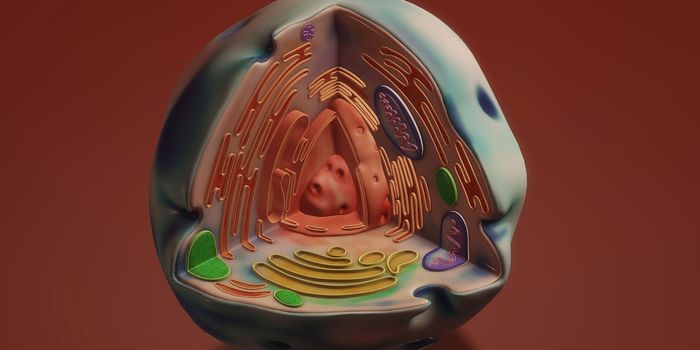A Gene Variant That Promotes Inflammation is Carried by Millions
Researchers have identified a small change in the sequence of a particular gene that increases the likelihood of inflammation in carriers. This is because the genetic variant, which could be found in as much as 3 percent of the global population, increases a process called necroptosis, an especially explosive form of programmed cell death. This work could explain why some individuals are more likely to develop inflammatory gut conditions or infections. The findings have been reported in Nature Communications.
Cell death is a necessary process. Cells have to die when they are old and worn out, or when their function becomes aberrant. Cell death can prevent cancer and the spread of infection. But in necroptosis, cells basically explode (as seen in the video below). When this happens, other cells also react.
"This is a good thing in the case of a viral infection, where necroptosis not only kills the infected cells but instructs the immune system to respond, clean things up, and start a more specific, long lived immune response," said first study author Dr. Sarah Garnish of the Walter and Eliza Hall Institute (WEHI). "But when necroptosis is uncontrolled or excessive, the inflammatory response can actually trigger disease."
A gene called MLKL can lead to necroptosis, and when the process is needed, the mechanism that normally stops MLKL releases it. In most people, MLKL works normally, and stops when it's supposed to. However, some people are not great at stopping MLKL all the time; about 2 or 3 percent of people carry a variation of MLKL that makes it less responsive to signals that turn it off. This common genetic change may only be present in a small percentage of people, but that is still millions of individuals. It could also be one factor in a variety of conditions that involve many genes.
"Taking type 2 diabetes as an example, it's rare that just one gene change determines whether someone will develop the condition," said project leader Dr. Joanne Hildebrand. "Instead many different genes play a role, as do environmental factors, like diet and smoking."
Right now however, scientists have not found any direct link between MLKL variants and a specific disease, noted Hildebrand.
This research could make a small but important contribution to the development of personalized medicine and treatments. "Every piece of information like this helps us make personalized medicine more of a reality," said Garnish.
Right now, the researchers are interested in determining how disruptions in the regulation of necroptosis could be helpful for some people. It may help some individuals get over viral infections more quickly, for example. Genetic changes don't tend to stick around in the genome and get passed down unless they provide some benefit, noted Garnish. "We're looking at the downsides of having this gene change, but we're looking for the upsides as well."
Sources: Walter and Eliza Hall Institute (WEHI), Nature Communications









